
Gulnara Kunirova / Foto by PACED
Gulnara Kunirova: Gradually We Are Reclaiming Our Place in the Sun
Gulnara Kunirova is the President of the Kazakhstan Association for Palliative Care and the Executive Director of the public foundation United Against Cancer. A person who came into palliative care from the business sector, she's become the Chief External Expert in Palliative Care at the Ministry of Healthcare of Kazakhstan. For over 15 years, she and her colleagues have been advancing the field. PACED Programme Head Ira Chernozhulova spoke to Gulnara in Almaty at a time when new standards for providing palliative care to children and adults were being adopted. This interview explores the history and future of supporting people with incurable diseases, difficult periods, and resources that help overcome them.
Вы можете прочитать интервью на русском языке по этой ссылке
Вы можете прочитать интервью на русском языке по этой ссылке
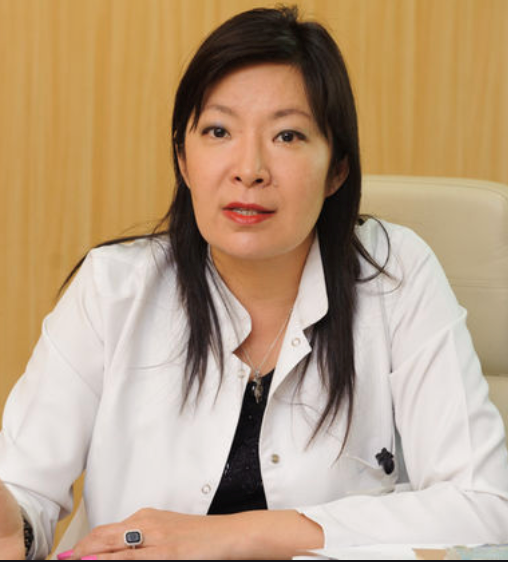
Dilyara Kaidarova
director of the Kazakhstan Research Institute of Oncology and Radiology, chief external oncologist of the Ministry of Healthcare of the Republic of Kazakhstan, and president of the Association of Oncologists of the Republic of Kazakhstan
a city in northern Kazakhstan
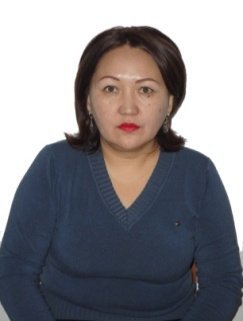
Asem Kasenova
the chief physician of the State Municipal Organisation Palliative Care Hospital of Pavlodar Region

Gulshara Urmurzina
a paediatrician and a top-category public health and social hygiene specialist. Deputy of the Almaty City Council

Talapkali Izmukhambetov
PhD, MD, a surgeon, state and public figure, Minister of Health of the Kazakh SSR (1987–1990)
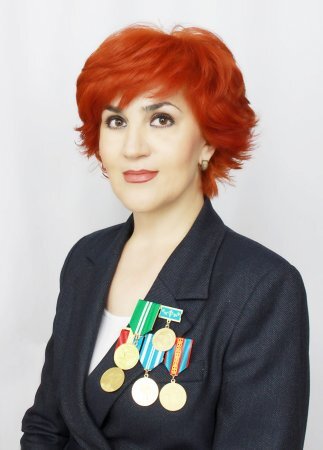
Anzhelika Saryan
director and founder of the public foundation for support of cancer patients Amazonka

Valentina Sirota
PhD, MD, an oncologist-surgeon, head of the Oncology Department at the Karaganda State Medical University
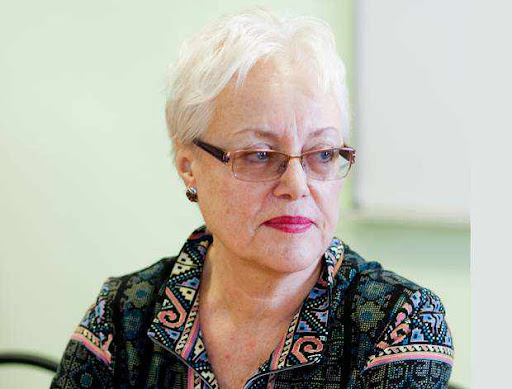
Nadezhda Kozachenko
head of the public foundation Credo

Anarkhan Nurkerimova
director of the Almaty Hospice

Tolganaі Ansatbayeva
a paediatric oncologist, radiologist, and physician with the Mobile Palliative Care Team in Almaty
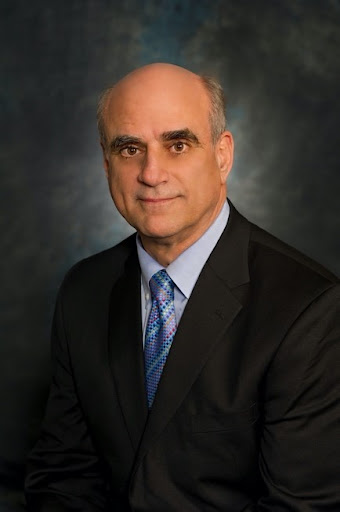
Stephen R. Connor
PhD – clinical health psychologist, palliative care consultant, and executive director of the Worldwide Hospice and Palliative Care Alliance (WHPCA)
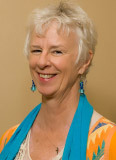
Katherine Irene Pettus
PhD – director of advocacy and partnerships at the International Association for Hospice and Palliative Care (IAHPC)
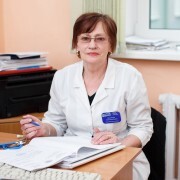
Anna Bykovskaya
head of the Pediatric Oncology Center at the Kazakhstan Research Institute of Oncology and Radiology, senior oncologist of the highest category
Kazakhstan National Medical University (KazNMU), the leading medical university of the Republic of Kazakhstan
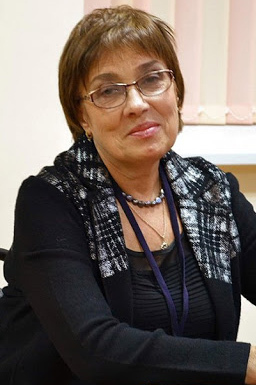
Tatiana Ostretsova
paediatrician, PhD in Medicine, director of the Aktobe Branch of the Public Association Kazakhstan Association of Family Physicians, member of the Public Council of the Aktobe Region, national expert in palliative care
Akimat
a regional executive authority in Kazakhstan

Aigerim Ayaganova,
a top-category physician, Master of Medical Sciences, director of the City Centre for Palliative Care in Almaty
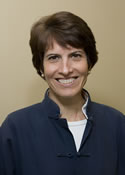
Liliana De Lima
Master of Health Administration (MHA), executive director of the International Association for Hospice and Palliative Care (IAHPC)
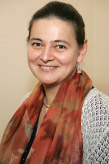
Daniela Moșoiu
director of national development and educational programs at Hospice Casa Sperantei, Romania
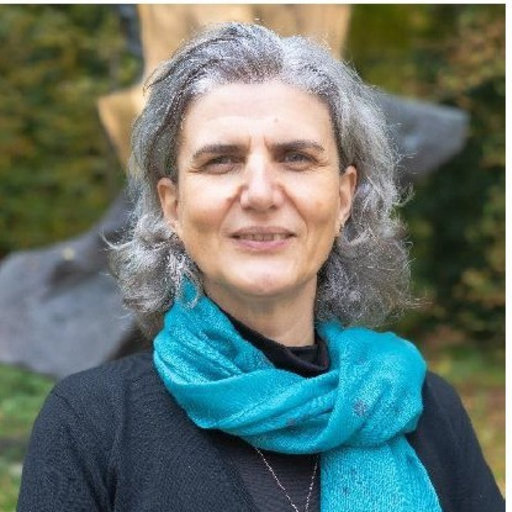
Nicoleta Mitrea
director of education and nursing development at Hospice Casa Sperantei, Brașov, Romania. You can read the summary of the webinar led by Nicoleta for PACED on the topic of Pain Assessment and Therapy in Palliative Care via the link
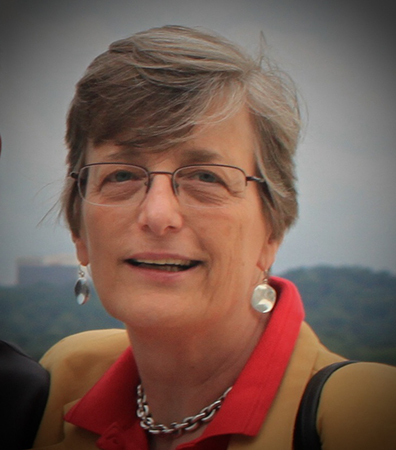
Mary Callaway
international expert in palliative care, the Soros Foundation

Julia Downing
palliative care nurse, educationalist and researcher. Chief executive of the International Children’s Palliative Care Network (ICPCN) and professor at universities in Uganda, Serbia and the UK
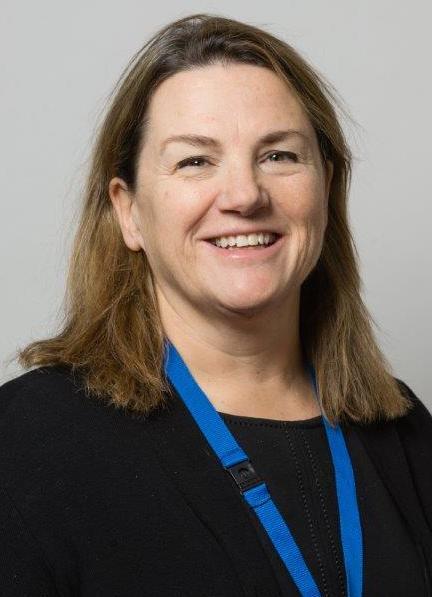
Julie Ling
CEO of the European Association for Palliative Care, consultant technical officer for palliative care for the European Regional Office, chair of the World Hospice and Palliative Care Alliance
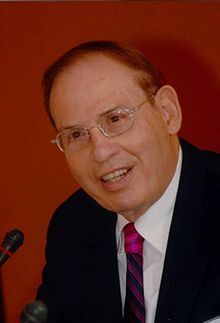
Michael Silbermann
MD, PhD, maxillofacial surgeon, publicist, and public figure from the United States
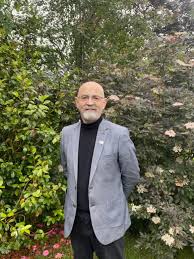
Max Watson
director of the ECHO Project at Hospice UK, consultant in palliative medicine at Western Trust in Omagh, Northern Ireland

Dame Cicely Saunders
(1918–2005), British nurse, social reformer, founder of the world’s first standalone hospice, St. Christopher's Hospice, and Dame Commander of the Order of the British Empire
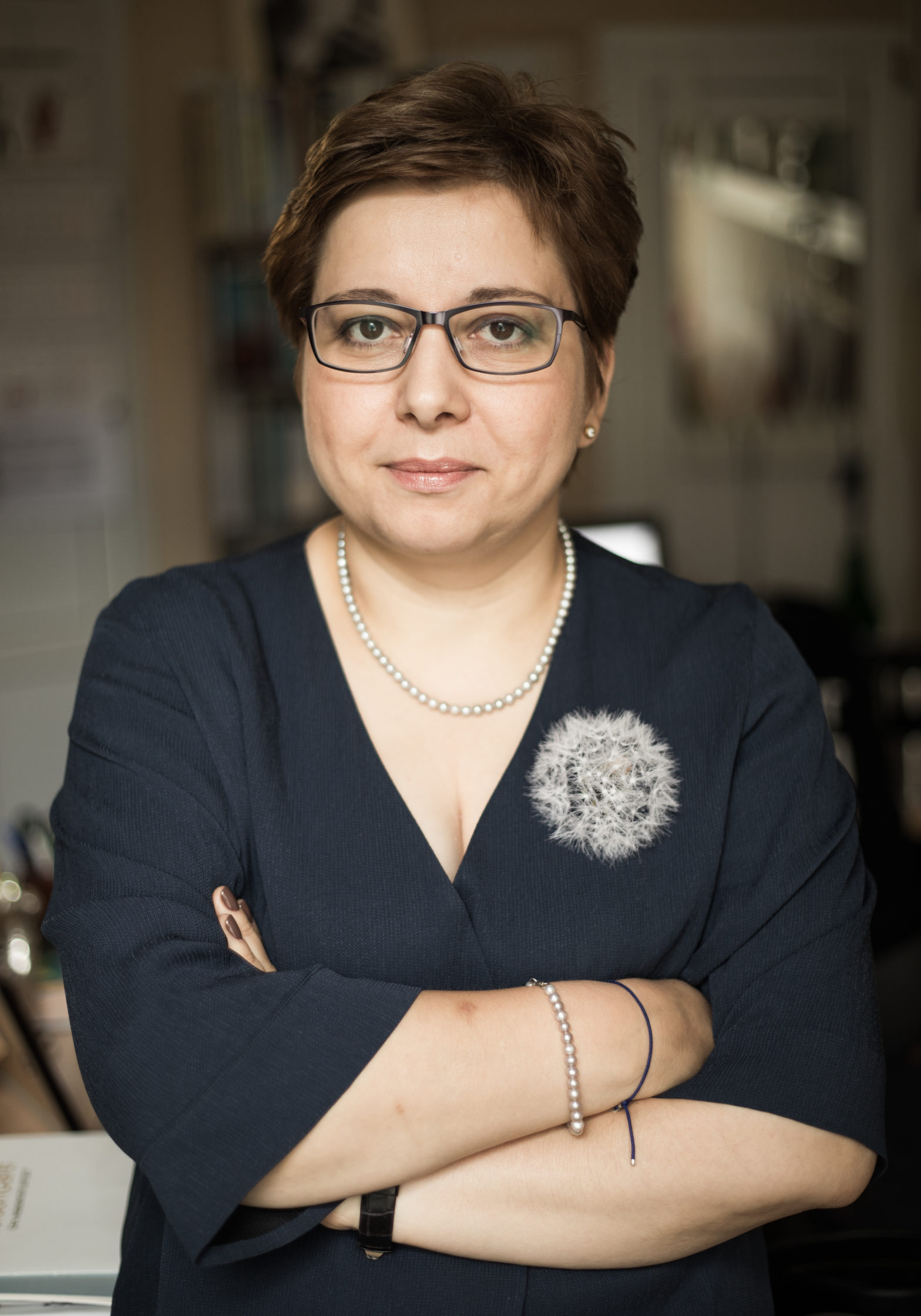
Nyuta (Anna) Federmesser
is a Russian public figure and the founder of the Vera Hospice Charity Fund
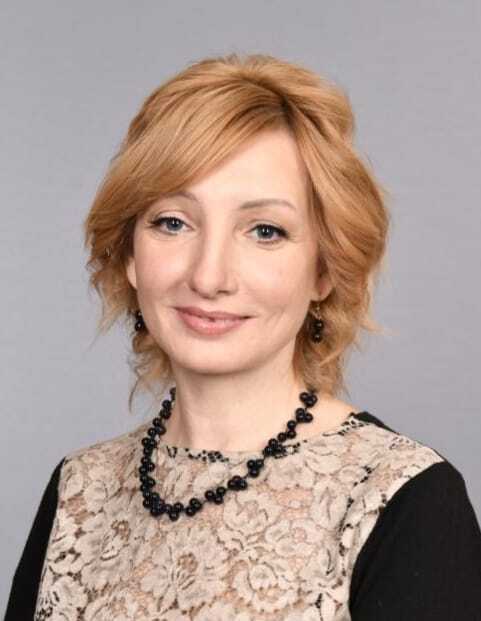
Diana Nevzorova
PhD in Medicine, director of the Clinical Centre at Sechenov First Moscow State Medical University, and chief external expert in palliative care at the Russian Ministry of Healthcare
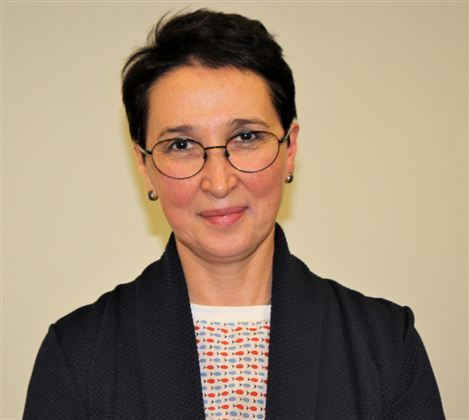
Guzel Abuzarova
MD, head of the Palliative Care Centre for Oncology Patients at the P.A. Herzen Moscow Oncology Research Institute

Olga Osetrova
chief physician of the Samara Hospice and a recognized specialist in palliative care in Russia.
Ira: Gulnara, can you tell us how palliative care entered your life?
Gulnara: Before 2008, my life and career were unrelated to palliative care or medicine. I have two higher education degrees: in foreign languages and psychology. For over 20 years, I worked in the oil and gas industry.
In Kazakhstan, doctors are limited in their actions because they are government employees, but they need to communicate information to the public. Our oncologists had this idea – to destigmatise the word “cancer.” So in 2008, on the initiative of oncologists and several public figures, the United Against Cancer Foundation was established. They needed someone with language skills to communicate with foreign partners, someone with a strategic vision, and a creative approach to projects. Dilara Kaidarova, who is now the chief oncologist of the Republic of Kazakhstan but was then the director of the Almaty Oncology Center, invited me. I agreed because it was a noble cause. By 2010, I was asked to become the foundation’s director.
Ira: What were your initial tasks at the foundation?
Gulnara: We were involved in awareness campaigns — organising breast cancer marches, outreach events, publishing books, and conducting a lot of preventive activities. We also raised funds, bought equipment, sent specialists to conferences and trainings, and invited experts to perform master classes. At some point, people started finding out about the foundation. We received a lot of calls, a flow of questions, and complaints about the healthcare system.
Gulnara: Before 2008, my life and career were unrelated to palliative care or medicine. I have two higher education degrees: in foreign languages and psychology. For over 20 years, I worked in the oil and gas industry.
In Kazakhstan, doctors are limited in their actions because they are government employees, but they need to communicate information to the public. Our oncologists had this idea – to destigmatise the word “cancer.” So in 2008, on the initiative of oncologists and several public figures, the United Against Cancer Foundation was established. They needed someone with language skills to communicate with foreign partners, someone with a strategic vision, and a creative approach to projects. Dilara Kaidarova, who is now the chief oncologist of the Republic of Kazakhstan but was then the director of the Almaty Oncology Center, invited me. I agreed because it was a noble cause. By 2010, I was asked to become the foundation’s director.
Ira: What were your initial tasks at the foundation?
Gulnara: We were involved in awareness campaigns — organising breast cancer marches, outreach events, publishing books, and conducting a lot of preventive activities. We also raised funds, bought equipment, sent specialists to conferences and trainings, and invited experts to perform master classes. At some point, people started finding out about the foundation. We received a lot of calls, a flow of questions, and complaints about the healthcare system.
The main question people asked was, «I've been left to die. What should I do?»
Actually, the government was investing significant resources in these people, but some link was missing. Whether by chance or not, we became that missing link.
I became acquainted with people who'd already worked on these issues in Kazakhstan. I learned about the activities of Pavlodar Hospice, which is still run by Asem Kasenova, met the people who opened the Almaty Hospice – Gulshara Urmurzina, Talapkali Izmukhambetov, got acquainted with Anzhelika Saryan, head of the public foundation for support of cancer patients Amazonka, befriended a wonderful oncologist, professor of the Karaganda Medical University Valentina Sirota and doctor of medical science, head of the public foundation Credo Nadezhda Kozachenko – together, they established the first multidisciplinary mobile home care team for HIV-infected and cancer patients in Karaganda. Through them, I also met the future director of our hospice in Almaty, Anarkhan Hurkerimova. At that time, she was already collaborating with the Soros-Kazakhstan Foundation, traveling to Romania to see how hospice care was organised there. At one of the Soros Foundation events, I proposed creating a mobile care team in Almaty
I became acquainted with people who'd already worked on these issues in Kazakhstan. I learned about the activities of Pavlodar Hospice, which is still run by Asem Kasenova, met the people who opened the Almaty Hospice – Gulshara Urmurzina, Talapkali Izmukhambetov, got acquainted with Anzhelika Saryan, head of the public foundation for support of cancer patients Amazonka, befriended a wonderful oncologist, professor of the Karaganda Medical University Valentina Sirota and doctor of medical science, head of the public foundation Credo Nadezhda Kozachenko – together, they established the first multidisciplinary mobile home care team for HIV-infected and cancer patients in Karaganda. Through them, I also met the future director of our hospice in Almaty, Anarkhan Hurkerimova. At that time, she was already collaborating with the Soros-Kazakhstan Foundation, traveling to Romania to see how hospice care was organised there. At one of the Soros Foundation events, I proposed creating a mobile care team in Almaty
«Looking back now, it’s frightening to recall. One doctor accompanied by a paramedic, and later a nurse simply went from house to house. Initially, they worked as volunteers».
Later, we won a grant and were able to pay them, but it was a very modest grant, so we had to be extremely frugal. I remember how Dilara received an emergency car as a gift and she passed it on to our mobile team. When the two years covered by the grant were nearing an end, I went back to Dilara and suggested that she would hire our doctor and nurse as the official staff. She agreed, and that fact most possibly was decisive for the future of the whole palliative care mobile team service.
By the time Dilara took over the Kazakh Institute of Oncology and Radiology, she fully understood the importance of palliative care. These are dying people we`re talking about; it’s not enough just to relieve their pain and offer sympathy by patting them on the head.
In 2018 she did her best in order to include palliative care in the Comprehensive Cancer Care Development Plan. The plan called for mobile home care teams in each region to assist stage 4 cancer patients. As is often the case, palliative care starts with helping terminal patients. For now, this works for us. Initially, as palliative care specialists, we argued about this.
By the time Dilara took over the Kazakh Institute of Oncology and Radiology, she fully understood the importance of palliative care. These are dying people we`re talking about; it’s not enough just to relieve their pain and offer sympathy by patting them on the head.
In 2018 she did her best in order to include palliative care in the Comprehensive Cancer Care Development Plan. The plan called for mobile home care teams in each region to assist stage 4 cancer patients. As is often the case, palliative care starts with helping terminal patients. For now, this works for us. Initially, as palliative care specialists, we argued about this.
«Now we’ve gotten off our moral high horse and understand that everything takes time. Even implementation of the concept of palliative care among officials takes time».
Gradually, we are reclaiming our place in the sun. Today, our service has grown to 19 people: three doctors, nurses, a social worker, a psychologist, a coordinator, a junior nurse, and three drivers. Almaty is a very large city. Thanks to the support of the Almaty Oncology Center, we now have enough vehicles to save the staff's time and energy. In palliative care, people are the most important, and honestly, I don't know where the Almaty service would be without Tolganay Ansatbayeva leading it.
I can’t say that my path has been... how to put it, natural. I am not a doctor, not a nurse, and I’ve never even worked as a psychologist. At the same time, this path was somehow predestined; I’m sure of that because, in the end, everything life has taught me came in handy: my personal experience caring for my father and for my mother-in-law, who was in a coma for several months — my husband and I took care of her. My language skills, psychology, strategic planning, project management, and ability to connect with people were all useful. I can’t think of a single skill that hasn’t been necessary in palliative care — you need everything here. That’s why I believe a higher force placed me here. I’m not looking for a way out of this situation. I consider it to be a duty, even a calling.
Ira: In your opinion, what personal qualities made you the first person people mention when I ask who is involved in palliative care in Kazakhstan? After all, there were specialists before you.
Gulnara: I don’t know what it is, maybe ambition. I always want to make everything work – to fix things so they function, systematically. I don’t know where this comes from. Once, my colleagues from the American company where I worked gathered, and we asked each other: “Are you an ambitious person?” I remember saying back then that I had no ambitions at all. I didn’t want to prove anything to anyone, not even myself. But now I realise what might be called ambition, though I can’t find a better word for it. If I see something isn’t working properly, I immediately know how to fix it and make things better on each level.
There’s also a quality instilled in me by my parents. They always said:
I can’t say that my path has been... how to put it, natural. I am not a doctor, not a nurse, and I’ve never even worked as a psychologist. At the same time, this path was somehow predestined; I’m sure of that because, in the end, everything life has taught me came in handy: my personal experience caring for my father and for my mother-in-law, who was in a coma for several months — my husband and I took care of her. My language skills, psychology, strategic planning, project management, and ability to connect with people were all useful. I can’t think of a single skill that hasn’t been necessary in palliative care — you need everything here. That’s why I believe a higher force placed me here. I’m not looking for a way out of this situation. I consider it to be a duty, even a calling.
Ira: In your opinion, what personal qualities made you the first person people mention when I ask who is involved in palliative care in Kazakhstan? After all, there were specialists before you.
Gulnara: I don’t know what it is, maybe ambition. I always want to make everything work – to fix things so they function, systematically. I don’t know where this comes from. Once, my colleagues from the American company where I worked gathered, and we asked each other: “Are you an ambitious person?” I remember saying back then that I had no ambitions at all. I didn’t want to prove anything to anyone, not even myself. But now I realise what might be called ambition, though I can’t find a better word for it. If I see something isn’t working properly, I immediately know how to fix it and make things better on each level.
There’s also a quality instilled in me by my parents. They always said:
«Wherever you are, leave that place better than it was when you arrived».

Handouts of the "Kazakhstan Association of Palliative Care" / Foto by PACED
This applies to any situation – whether it's visiting a public restroom or interacting with someone seeking support. I think this drive for improvement is a very much-needed trait in palliative care. Some may call it perfectionism or a “straight-A student syndrome.” Though, by the way, I was not a straight-A student at school.
Ira: Can you describe the changes in palliative care in Kazakhstan over the past 10 years – both in terms of progress and setbacks?
Gulnara: Our foundation is exactly 10 years old. The setbacks were mainly due to the pandemic, which really slowed us down for two years. There were no roadmap, no programmes; palliative departments were disbanded, and palliative care specialists were transferred to COVID departments. However, even during the pandemic, some progress was made. We had already initiated the process of amending the National Health Code, and it slowly made its way through various stages. As it happened, during the COVID-19 pandemic, a new National Health Code was passed, which included a comprehensive definition of palliative care; it was determined as a separate medical issue. We’re going to revise it again though, because right now it mentions both palliative care and palliative medical care, creating a false impression that these are two different types of palliative care. In any case, at the time, there were different deputies and a different understanding. Now, four years later, the people and the understanding have changed. It has deepened, thanks to information from social media and the fact that deputies have started visiting our facilities. We’re already prepared to make further amendments to the National Health Code.
Ira: Are people more aware of palliative care now?
Gulnara: Ten years ago, palliative care was viewed strictly as end-of-life care, existing solely within the hospice care paradigm, not as a separate discipline. Hospices weren’t even available everywhere, and many places still don’t have them. For the Ministry of Healthcare, palliative care was inseparably linked to nursing care, which was reflected in all the orders and documents. Because of this connection, palliative care was only provided to cancer patients, while for everyone else, it was just nursing care. As if non-cancer patients didn’t need doctors or opioid pain relief. The Ministry essentially equated “cancer patient” with “palliative care.” If you weren’t a cancer patient, you were just given a nurse. There was also a difference in pay because palliative care beds and nursing care beds were reimbursed at different rates.
We decided to make a distinction by explaining that nursing care is by default a part of palliative care, just as it is in rehabilitation, obstetrics, cardiology, and so on. But palliative care is equally necessary for both oncology and non-oncology patients.
Ira: Can you describe the changes in palliative care in Kazakhstan over the past 10 years – both in terms of progress and setbacks?
Gulnara: Our foundation is exactly 10 years old. The setbacks were mainly due to the pandemic, which really slowed us down for two years. There were no roadmap, no programmes; palliative departments were disbanded, and palliative care specialists were transferred to COVID departments. However, even during the pandemic, some progress was made. We had already initiated the process of amending the National Health Code, and it slowly made its way through various stages. As it happened, during the COVID-19 pandemic, a new National Health Code was passed, which included a comprehensive definition of palliative care; it was determined as a separate medical issue. We’re going to revise it again though, because right now it mentions both palliative care and palliative medical care, creating a false impression that these are two different types of palliative care. In any case, at the time, there were different deputies and a different understanding. Now, four years later, the people and the understanding have changed. It has deepened, thanks to information from social media and the fact that deputies have started visiting our facilities. We’re already prepared to make further amendments to the National Health Code.
Ira: Are people more aware of palliative care now?
Gulnara: Ten years ago, palliative care was viewed strictly as end-of-life care, existing solely within the hospice care paradigm, not as a separate discipline. Hospices weren’t even available everywhere, and many places still don’t have them. For the Ministry of Healthcare, palliative care was inseparably linked to nursing care, which was reflected in all the orders and documents. Because of this connection, palliative care was only provided to cancer patients, while for everyone else, it was just nursing care. As if non-cancer patients didn’t need doctors or opioid pain relief. The Ministry essentially equated “cancer patient” with “palliative care.” If you weren’t a cancer patient, you were just given a nurse. There was also a difference in pay because palliative care beds and nursing care beds were reimbursed at different rates.
We decided to make a distinction by explaining that nursing care is by default a part of palliative care, just as it is in rehabilitation, obstetrics, cardiology, and so on. But palliative care is equally necessary for both oncology and non-oncology patients.
«In order to provide palliative care, we need more than a doctor and a nurse, we need a multidisciplinary team, and we need a sufficient reimbursement rate».
Somehow, we broke that connection. Now, in accordance with a standard, our team includes a doctor, a nurse, a psychologist, and a social worker. Every year, we fight for higher rates, but things have improved significantly because the rate for nursing care was very low.
Ira: You said, “Somehow, we broke that.” This is a common challenge for specialists in different countries who see the potential to change their systems but can’t make progress yet. Can you tell us more about who listened to you and where you sought support?
Gulnara: We simply proposed changes to the regulatory documents and had many discussions with ministers, vice-ministers, and departments of the Ministry of Healthcare. Well, “simply.” At first, it was quite challenging. I was often criticised for not being a medical professional and not understanding the realities of the healthcare system and clinical practice. But we created the Kazakhstan Association for Palliative Care, which includes doctors, nurses, educators, and candidates and doctors of sciences – true leaders of palliative care. People like Tatyana Ostretsova in Aktobe, a candidate of medical sciences, who is not only a specialist in palliative care but also in evidence-based and family medicine.
Over time, we gained more respect, and people at higher levels started to listen. It's also important to raise these issues at the ministerial level, where the authority of international experts is helpful: “Please meet Stephen Connor, who heads the Worldwide Hospice and Palliative Care Alliance.” “Please meet Katherine Pettus, the Advocacy Director for the International Association for Hospice and Palliative Care.” It’s useful when such meetings happen at the highest level first, and then you go and speak with the supervising vice-minister.
Ira: How do you choose which topics to bring to the vice-minister?
Gulnara: It’s very important to stay connected with patients and their relatives. Of course, there is communication through people working “in the field,” but we also have a hotline. Unfortunately, no one funds it, but it’s our live connection to people. Often, it happens that we need to address a certain issue, and we get a call from someone who is currently facing that exact issue. It can be anything, pain management for example. It’s important to notice such coincidences. In palliative care, it’s essential to be observant.
Years ago, I took care of my mother-in-law, who was in a coma. When she was discharged from the hospital, we asked for an ICU nurse – they’re usually the most experienced – to help us at home. We were lucky to find a very good nurse, a compassionate person who called my mother-in-law “apashka” (it is like “nana” in English). She became part of our family.
At that time, I knew nothing about palliative care. Later, when we started working in this field, I realised we needed people like that nurse. But where do you find such people, so special? Not only do they need to be skilled professionals, but they must also have something extra inside – back then, I didn’t understand exactly what qualities we needed.
Ira: You said, “Somehow, we broke that.” This is a common challenge for specialists in different countries who see the potential to change their systems but can’t make progress yet. Can you tell us more about who listened to you and where you sought support?
Gulnara: We simply proposed changes to the regulatory documents and had many discussions with ministers, vice-ministers, and departments of the Ministry of Healthcare. Well, “simply.” At first, it was quite challenging. I was often criticised for not being a medical professional and not understanding the realities of the healthcare system and clinical practice. But we created the Kazakhstan Association for Palliative Care, which includes doctors, nurses, educators, and candidates and doctors of sciences – true leaders of palliative care. People like Tatyana Ostretsova in Aktobe, a candidate of medical sciences, who is not only a specialist in palliative care but also in evidence-based and family medicine.
Over time, we gained more respect, and people at higher levels started to listen. It's also important to raise these issues at the ministerial level, where the authority of international experts is helpful: “Please meet Stephen Connor, who heads the Worldwide Hospice and Palliative Care Alliance.” “Please meet Katherine Pettus, the Advocacy Director for the International Association for Hospice and Palliative Care.” It’s useful when such meetings happen at the highest level first, and then you go and speak with the supervising vice-minister.
Ira: How do you choose which topics to bring to the vice-minister?
Gulnara: It’s very important to stay connected with patients and their relatives. Of course, there is communication through people working “in the field,” but we also have a hotline. Unfortunately, no one funds it, but it’s our live connection to people. Often, it happens that we need to address a certain issue, and we get a call from someone who is currently facing that exact issue. It can be anything, pain management for example. It’s important to notice such coincidences. In palliative care, it’s essential to be observant.
Years ago, I took care of my mother-in-law, who was in a coma. When she was discharged from the hospital, we asked for an ICU nurse – they’re usually the most experienced – to help us at home. We were lucky to find a very good nurse, a compassionate person who called my mother-in-law “apashka” (it is like “nana” in English). She became part of our family.
At that time, I knew nothing about palliative care. Later, when we started working in this field, I realised we needed people like that nurse. But where do you find such people, so special? Not only do they need to be skilled professionals, but they must also have something extra inside – back then, I didn’t understand exactly what qualities we needed.
«Now, I can immediately recognise the right people for this work. I call them “intuitively palliative».

Stephen Connor's book in Gulnara Kunirova's office / Foto by PACED
I visit places, meet new people, and can tell if someone isn’t really “palliative” – they’ll probably leave soon. But sometimes, there’s someone who seems entirely unsuitable, coming from a completely different field, and yet, they turn out to be “palliative.”
So, I wondered, “Where can I find someone like our nurse but who’s also a doctor?” About three months later, I visited the paediatric department of the oncology centre as a representative of the foundation, to see where repairs were needed and how else we could help. Out came Anna Nikolaevna, accompanied by another doctor. I looked closer and realised – it was our Tolganay! I said, “Do you remember us? Do you remember apashka?”
Years had passed since we last met, and my mother-in-law had passed away. Back when she took care of my mother-in-law, she dreamed of going to medical school. And guess what — over the years, she had enrolled and graduated from Asfendiyarov Medical University. Now, she’s a paediatric oncologist and radiologist. Amazing! The children adore her; they run to her. She’s a wonderful person. I said to her, “We have this thing called palliative care. Maybe you’d be interested? Children need palliative care too.” “I don’t know,” she replied. “I’m an oncologist, a respected doctor.”
So, I wondered, “Where can I find someone like our nurse but who’s also a doctor?” About three months later, I visited the paediatric department of the oncology centre as a representative of the foundation, to see where repairs were needed and how else we could help. Out came Anna Nikolaevna, accompanied by another doctor. I looked closer and realised – it was our Tolganay! I said, “Do you remember us? Do you remember apashka?”
Years had passed since we last met, and my mother-in-law had passed away. Back when she took care of my mother-in-law, she dreamed of going to medical school. And guess what — over the years, she had enrolled and graduated from Asfendiyarov Medical University. Now, she’s a paediatric oncologist and radiologist. Amazing! The children adore her; they run to her. She’s a wonderful person. I said to her, “We have this thing called palliative care. Maybe you’d be interested? Children need palliative care too.” “I don’t know,” she replied. “I’m an oncologist, a respected doctor.”
«But three months later, she came back and said, “Tell me more about this palliative care thing.” Now she leads our mobile care team».
She developed all the documentation and built the system we work with. She has assembled a wonderful team and, importantly, created an atmosphere of a big family where everyone supports one another, and each person is ready to help and offer support. They are learning every day. I believe this is the model mobile team in the country today!
Interestingly, I asked for a nurse with that same set of qualities but as a doctor, and God sent me not just someone like her, but actually her, only as a doctor! Can you imagine?
I think it’s important to recognise such moments and to be grateful for them. I teach my team the same. For instance, if they had a difficult home visit, which isn’t uncommon — families can be complicated and there are many challenging ones — our social workers might hear things like, “Just clean the floors; that’s all we need from you,” or, “Why are you even here?” Early on, nurses were even thrown out sometimes. You have to learn not to take it personally, not to get too emotionally involved, and to focus on how God has rewarded your patience. It’s a little trick, but it’s very helpful in daily work.
Ira: You mentioned a hotline. Do you have a call centre?
Gulnara: Here’s our call centre (shows a mobile phone in her hand). We state that this is the number you can call if you have issues with pain management, don’t know where to hospitalise a patient, and so on. Most of the calls currently come from Almaty. When the number disappears from social media, the calls decrease. Sometimes we run an announcement to remind people, and then we get a flood of calls.
What's so important about the hotline is that it is a live connection, it helps us raise issues related to patient routing, access to care in specific regions, and the availability of opioids.
Ira: How do you address pain management issues?
Gulnara: During the pandemic, when I was not yet the chief external expert, the Vice Minister of Healthcare created a platform for us, a WhatsApp chat that included responsible representatives from regional health departments. We can write: “This region, this village, this problem, please look into it.” And they address these issues right away. Yes, it's “manual management,” and systemic solutions are still necessary, but this is a very effective tool. Of course, there are more complicated situations where we have to call an oncologist or another responsible doctor and discuss things with them, providing clarification. Sometimes it’s hard because you can’t just sit and deal with it all the time, but for me, it’s important: you don’t miss anything, you’re always involved, and you know what’s happening on both the ground level and higher up. You’re making sure complaints reach the right people.
Interestingly, I asked for a nurse with that same set of qualities but as a doctor, and God sent me not just someone like her, but actually her, only as a doctor! Can you imagine?
I think it’s important to recognise such moments and to be grateful for them. I teach my team the same. For instance, if they had a difficult home visit, which isn’t uncommon — families can be complicated and there are many challenging ones — our social workers might hear things like, “Just clean the floors; that’s all we need from you,” or, “Why are you even here?” Early on, nurses were even thrown out sometimes. You have to learn not to take it personally, not to get too emotionally involved, and to focus on how God has rewarded your patience. It’s a little trick, but it’s very helpful in daily work.
Ira: You mentioned a hotline. Do you have a call centre?
Gulnara: Here’s our call centre (shows a mobile phone in her hand). We state that this is the number you can call if you have issues with pain management, don’t know where to hospitalise a patient, and so on. Most of the calls currently come from Almaty. When the number disappears from social media, the calls decrease. Sometimes we run an announcement to remind people, and then we get a flood of calls.
What's so important about the hotline is that it is a live connection, it helps us raise issues related to patient routing, access to care in specific regions, and the availability of opioids.
Ira: How do you address pain management issues?
Gulnara: During the pandemic, when I was not yet the chief external expert, the Vice Minister of Healthcare created a platform for us, a WhatsApp chat that included responsible representatives from regional health departments. We can write: “This region, this village, this problem, please look into it.” And they address these issues right away. Yes, it's “manual management,” and systemic solutions are still necessary, but this is a very effective tool. Of course, there are more complicated situations where we have to call an oncologist or another responsible doctor and discuss things with them, providing clarification. Sometimes it’s hard because you can’t just sit and deal with it all the time, but for me, it’s important: you don’t miss anything, you’re always involved, and you know what’s happening on both the ground level and higher up. You’re making sure complaints reach the right people.
«Because regulations can change, but that doesn’t always reflect what’s happening on the ground».

Gulnara Kunirova / Foto by PACED
Ira: How did the Kazakhstan Association for Palliative Care come into being?
Gulnara: Before I came along, people who were already involved in palliative care in Kazakhstan wanted to create an association. Everyone understood that there was a need to unite, but no one had the time to get the process started — to go to a lawyer, draft the charter, get it approved, register it with the Ministry of Justice, and so on. So, I thought, “Why not give it a try?” And so I did. We decided not to make the association a union of individuals because there weren’t many people to unite – we didn’t even have a formal palliative care specialty or doctors specifically trained for it. But we needed to show that we had a substantial number of members, not for more funding, but to ensure that we were heard and respected. So, we decided to have NGOs as the founding members. Our founding members included the public foundation Credo from Karaganda, the foundation United Against Cancer, a youth volunteer organisation Adamgershilik (sorry to say, they`re closed now), and the public fund for the support of oncology patients Amazonka, led by Angelika Saryan, who`d been a cancer patient herself. She also came up with the Hospice on Wheels – a home-based palliative care team.
Ira: What educational opportunities are currently available for palliative care professionals, both medical and non-medical, in Kazakhstan and abroad?
Gulnara: There aren’t many opportunities because we don’t have a single palliative care department in any medical school. Occasionally, courses come up, for example, there is a good elective course at the Karaganda State Medical University. In the past, there was a course at the Asfendiyarov Kazakhstan National Medical University in Almaty. Wherever we have people involved in palliative care, there is some kind of training. For example, Tatiana Petrovna Ostretsova at the West Kazakhstan Medical University named after Marat Ospanov does a lot of training. She travels to the regions and also conducts courses at her department. We have now implemented mandatory academic hours: 120 hours at the residency level and another 60 hours, I think, at the internship level. In theory, there are training hours, but they are scattered across various disciplines: paediatrics, gerontology, oncology, and neurology. We can see the course titles and what is included in them, but there are no thought-through modules, units are distributed improperly, and there is no clinical practice basis. We can tell that the programs were created by people who didn’t consult with us and who didn't fully understand how palliative care should be taught.
We’ve included the development of educational courses in our new roadmap for palliative care development and will recommend that all universities and colleges adopt the programs we have already developed.
Gulnara: Before I came along, people who were already involved in palliative care in Kazakhstan wanted to create an association. Everyone understood that there was a need to unite, but no one had the time to get the process started — to go to a lawyer, draft the charter, get it approved, register it with the Ministry of Justice, and so on. So, I thought, “Why not give it a try?” And so I did. We decided not to make the association a union of individuals because there weren’t many people to unite – we didn’t even have a formal palliative care specialty or doctors specifically trained for it. But we needed to show that we had a substantial number of members, not for more funding, but to ensure that we were heard and respected. So, we decided to have NGOs as the founding members. Our founding members included the public foundation Credo from Karaganda, the foundation United Against Cancer, a youth volunteer organisation Adamgershilik (sorry to say, they`re closed now), and the public fund for the support of oncology patients Amazonka, led by Angelika Saryan, who`d been a cancer patient herself. She also came up with the Hospice on Wheels – a home-based palliative care team.
Ira: What educational opportunities are currently available for palliative care professionals, both medical and non-medical, in Kazakhstan and abroad?
Gulnara: There aren’t many opportunities because we don’t have a single palliative care department in any medical school. Occasionally, courses come up, for example, there is a good elective course at the Karaganda State Medical University. In the past, there was a course at the Asfendiyarov Kazakhstan National Medical University in Almaty. Wherever we have people involved in palliative care, there is some kind of training. For example, Tatiana Petrovna Ostretsova at the West Kazakhstan Medical University named after Marat Ospanov does a lot of training. She travels to the regions and also conducts courses at her department. We have now implemented mandatory academic hours: 120 hours at the residency level and another 60 hours, I think, at the internship level. In theory, there are training hours, but they are scattered across various disciplines: paediatrics, gerontology, oncology, and neurology. We can see the course titles and what is included in them, but there are no thought-through modules, units are distributed improperly, and there is no clinical practice basis. We can tell that the programs were created by people who didn’t consult with us and who didn't fully understand how palliative care should be taught.
We’ve included the development of educational courses in our new roadmap for palliative care development and will recommend that all universities and colleges adopt the programs we have already developed.
«The problem is that the education program isn’t standardised yet. Another issue — there’s no one to teach it».
To teach, the instructors themselves need to understand what palliative care is and need to have taken this course. So, we included the training of educators in our roadmap as well.
It would be logical to offer training at the universities where we have connections — in Karaganda, Astana, Aktobe. Travelling elsewhere requires funding. If there’s financing, people are more than happy to go for training. We haven’t yet had the opportunity to send someone for long-term training, but we have sent people to short events and courses. Thankfully, we’ve now reached the point where Akimats are sponsoring people to go abroad for palliative care training using local budget funds. This is significant progress in recognising the importance of palliative care
Ira: We’re speaking now at an important stage of your work. Firstly, the country has a new Minister of Healthcare, and secondly, you’re about to finalise a new roadmap for both adult and paediatric palliative care. You are the person most involved in this process at the national level. Can you share your thoughts and observations on this work? What was the most challenging aspect, and what do you see as the most important issue?
It would be logical to offer training at the universities where we have connections — in Karaganda, Astana, Aktobe. Travelling elsewhere requires funding. If there’s financing, people are more than happy to go for training. We haven’t yet had the opportunity to send someone for long-term training, but we have sent people to short events and courses. Thankfully, we’ve now reached the point where Akimats are sponsoring people to go abroad for palliative care training using local budget funds. This is significant progress in recognising the importance of palliative care
Ira: We’re speaking now at an important stage of your work. Firstly, the country has a new Minister of Healthcare, and secondly, you’re about to finalise a new roadmap for both adult and paediatric palliative care. You are the person most involved in this process at the national level. Can you share your thoughts and observations on this work? What was the most challenging aspect, and what do you see as the most important issue?
«The hardest part is ourselves because, in order to draft something for the entire country, we need to agree among ourselves».
Gulnara: First, we need to define the terms. Second, we need to be clear about what we want to achieve in the future. Reaching that agreement is crucial.
We have a chat group in our adult palliative care association, where we invite anyone interested in the field. There, we discuss everything that's happening – informing members about training events, discussing current issues, and changes in the regulatory framework. Some people share their opinions, while others are still learning and don’t feel confident enough to speak up yet, so they observe the trends that are emerging. That’s how we developed the current second edition of the roadmap.
We`d had the first roadmap for three years, but it ended, and then the pandemic hit. After the pandemic, we wrote a long letter to the minister, nine pages in total. The minister immediately responded and organised a big Zoom meeting. During that meeting, she made the decision to develop new roadmaps, including, for the first time, one specifically for paediatric palliative care, and I was offered the role of chief external expert in palliative care.
We have a chat group in our adult palliative care association, where we invite anyone interested in the field. There, we discuss everything that's happening – informing members about training events, discussing current issues, and changes in the regulatory framework. Some people share their opinions, while others are still learning and don’t feel confident enough to speak up yet, so they observe the trends that are emerging. That’s how we developed the current second edition of the roadmap.
We`d had the first roadmap for three years, but it ended, and then the pandemic hit. After the pandemic, we wrote a long letter to the minister, nine pages in total. The minister immediately responded and organised a big Zoom meeting. During that meeting, she made the decision to develop new roadmaps, including, for the first time, one specifically for paediatric palliative care, and I was offered the role of chief external expert in palliative care.
«It’s been a valuable experience, but also a difficult one because this kind of work requires a shift in mindset. One has to learn to see an issue from both points of view – one of the public and another of the government».
We created two roadmaps: one for adult palliative care and one for paediatric palliative care. There’s also a peculiar challenge: while writing, everything seems to be going well, but later, you realise that some parts are written incorrectly, some are unachievable, and some are tied to other documents that can’t be changed, so certain things won’t happen. For paediatric care, we outlined the basics because there’s no system in place, nothing at all. We’ve accomplished both roadmaps, and they will expire this year, in 2024.
The new roadmap is a great opportunity to reset. By the end of this year, we still need to revise the adult standard and submit for approval a separate standard for children. By the way, in July, this year, at our request, the Ministry of Healthcare created the position of chief external expert in paediatric palliative care. This is also a significant breakthrough.
Ira: Who helps you draft all these documents?
Gulnara: When it comes to standards, legal assistance is often needed.
Unfortunately, we don't have a lawyer. However, we have a rough idea of how to write it since this isn't our first standard. Regarding the roadmap, we consult with the Ministry of Healthcare and discuss specific points with various departments: pharmaceutical policy, medical care organisation, legal affairs, and maternal and child health. Over the past 2-3 years, we've established direct relationships with key individuals in these departments
The new roadmap is a great opportunity to reset. By the end of this year, we still need to revise the adult standard and submit for approval a separate standard for children. By the way, in July, this year, at our request, the Ministry of Healthcare created the position of chief external expert in paediatric palliative care. This is also a significant breakthrough.
Ira: Who helps you draft all these documents?
Gulnara: When it comes to standards, legal assistance is often needed.
Unfortunately, we don't have a lawyer. However, we have a rough idea of how to write it since this isn't our first standard. Regarding the roadmap, we consult with the Ministry of Healthcare and discuss specific points with various departments: pharmaceutical policy, medical care organisation, legal affairs, and maternal and child health. Over the past 2-3 years, we've established direct relationships with key individuals in these departments
«It is very useful for our mission to maintain professional, non-confrontational relationships with the Ministry of Healthcare».
Ira: Which colleagues inspire you – both from Kazakhstan and abroad?
You know, all of them. Each person has their own way of inspiring. For example, today I met with Aygerim Serikbaevna, director of the City Centre for Palliative Care in Almaty. Before that, she was the head of a large outpatient clinic. She has incredible administrative talent – she can account for everything, and understand how things are financed, where to attract resources, and who to talk to. In just three years with her, there's been a major breakthrough. How can you not be inspired by someone who came from a completely different field and achieved so much?
Another example is Tolganay Nasyrovna. Residents coming into training with her ask, “You were a paediatric oncologist, a respected doctor, and now you’re just a doctor in some mobile palliative care team?” Then she starts teaching them, taking them with her on calls. You wouldn’t believe how she teaches. In August, we ran a course. People arrived – just like anyone else – but they left like shining beacons. They want to make changes and improve things. It’s truly transformative and incredibly inspiring.
Or take Tatiana Petrovna. She lives in a private house and rescues animals that are constantly being brought to her. When you talk to her on the phone, the dogs are always nearby. She is an amazing lecturer – people listen to her with fascination because she has a beautiful command of language, her speech is perfectly structured, and she respects her audience. Currently, in Aktobe, she serves as the chief regional external expert in palliative care and is reorganising the work of mobile teams. She is a true centre of attraction; people follow her. Moreover, she has the ability to communicate with leaders and representatives of the Ministry of Healthcare, always finding the right tone in a very delicate manner. A truly unique person.
Nadezhda Veniaminovna is another inspiration. She created a mobile team from scratch, showing all of us what’s possible. There are so many inspirational people. I truly respect and appreciate everyone working in palliative care in Kazakhstan.
As for the global scene, the brilliant Stephen Connor, Liliana De Lima come to mind. I was quite surprised when I was invited to join the board of the International Association for Hospice and Palliative Care (IAHPC). They were mostly focused on Latin America, India, African countries, and other LMICs (Low and Middle-Income Countries). Our region usually doesn’t make the list. But now, I tell my colleagues from the region about the association because we need to develop these connections too, especially considering the fact that partnerships with international organisations give access to wonderful resources.
Many people inspire me — all of our colleagues, really. There’s Daniela Mosoiu from the Casa Sperantei Hospice in Romania. And also Nicoleta Mitrea, from the same hospice, Mary Callaway, who was the first palliative care missionary for Kazakhstan, Julia Downing – a recognized leader of the paediatric palliative care movement, Julie Ling, who led the European Association for Palliative Care for many years and now holds the position of technical consultant on palliative care at the WHO European Office, and Professor Michael Silbermann, who from time to time gathers an amazing international group of authors to write a large-scale monograph. In fact, one of these collective monographs is about to be published soon.
You know how it is at conferences and seminars: you start talking to someone, and everyone shares their story. I can’t even count how many such inspiring people there are – hundreds, really. One more person I’ll single out is Max Watson. He visited us from a hospice in Northern Ireland in 2016 to deliver training. He’s extraordinary, and he personally knew Dame Cicely Saunders. He even has a photo with her from when they worked together. A charismatic leader and a wonderful person. In each country of our region, there are people I look up to and respect deeply: Nyuta Federmesser,Diana Nevzorova, Guzel Abuzarova, Olga Osetrova – it’s almost scary to forget anyone. In Kyrgyzstan, Uzbekistan, Moldova, Georgia, Armenia, Poland, Albania, Denmark – everywhere you go, you find your people.
You know, all of them. Each person has their own way of inspiring. For example, today I met with Aygerim Serikbaevna, director of the City Centre for Palliative Care in Almaty. Before that, she was the head of a large outpatient clinic. She has incredible administrative talent – she can account for everything, and understand how things are financed, where to attract resources, and who to talk to. In just three years with her, there's been a major breakthrough. How can you not be inspired by someone who came from a completely different field and achieved so much?
Another example is Tolganay Nasyrovna. Residents coming into training with her ask, “You were a paediatric oncologist, a respected doctor, and now you’re just a doctor in some mobile palliative care team?” Then she starts teaching them, taking them with her on calls. You wouldn’t believe how she teaches. In August, we ran a course. People arrived – just like anyone else – but they left like shining beacons. They want to make changes and improve things. It’s truly transformative and incredibly inspiring.
Or take Tatiana Petrovna. She lives in a private house and rescues animals that are constantly being brought to her. When you talk to her on the phone, the dogs are always nearby. She is an amazing lecturer – people listen to her with fascination because she has a beautiful command of language, her speech is perfectly structured, and she respects her audience. Currently, in Aktobe, she serves as the chief regional external expert in palliative care and is reorganising the work of mobile teams. She is a true centre of attraction; people follow her. Moreover, she has the ability to communicate with leaders and representatives of the Ministry of Healthcare, always finding the right tone in a very delicate manner. A truly unique person.
Nadezhda Veniaminovna is another inspiration. She created a mobile team from scratch, showing all of us what’s possible. There are so many inspirational people. I truly respect and appreciate everyone working in palliative care in Kazakhstan.
As for the global scene, the brilliant Stephen Connor, Liliana De Lima come to mind. I was quite surprised when I was invited to join the board of the International Association for Hospice and Palliative Care (IAHPC). They were mostly focused on Latin America, India, African countries, and other LMICs (Low and Middle-Income Countries). Our region usually doesn’t make the list. But now, I tell my colleagues from the region about the association because we need to develop these connections too, especially considering the fact that partnerships with international organisations give access to wonderful resources.
Many people inspire me — all of our colleagues, really. There’s Daniela Mosoiu from the Casa Sperantei Hospice in Romania. And also Nicoleta Mitrea, from the same hospice, Mary Callaway, who was the first palliative care missionary for Kazakhstan, Julia Downing – a recognized leader of the paediatric palliative care movement, Julie Ling, who led the European Association for Palliative Care for many years and now holds the position of technical consultant on palliative care at the WHO European Office, and Professor Michael Silbermann, who from time to time gathers an amazing international group of authors to write a large-scale monograph. In fact, one of these collective monographs is about to be published soon.
You know how it is at conferences and seminars: you start talking to someone, and everyone shares their story. I can’t even count how many such inspiring people there are – hundreds, really. One more person I’ll single out is Max Watson. He visited us from a hospice in Northern Ireland in 2016 to deliver training. He’s extraordinary, and he personally knew Dame Cicely Saunders. He even has a photo with her from when they worked together. A charismatic leader and a wonderful person. In each country of our region, there are people I look up to and respect deeply: Nyuta Federmesser,Diana Nevzorova, Guzel Abuzarova, Olga Osetrova – it’s almost scary to forget anyone. In Kyrgyzstan, Uzbekistan, Moldova, Georgia, Armenia, Poland, Albania, Denmark – everywhere you go, you find your people.
«All of them are “palliative people».

Team PACED with Gulnara Kunirova / Foto by PACED
Useful links:
- United Against Cancer Foundation: http://oncology.kz/index.php
- Amazonka Public Foundation: http://amazonka.kz/
- Credo Public Association on the Kazakhstan Palliative Care Association’s website: http://palliative.kz/ob_associacii/uchrediteli/obschestvennoe_obedinenie_kredo
- Soros-Kazakhstan Foundation: https://www.soros.kz/ru/alone_with_the_disease/
- Kazakh Research Institute of Oncology and Radiology: https://kazior.kz/
- The World Hospice and Palliative Care Alliance (WHPCA): https://thewhpca.org/
- International Association for Hospice and Palliative Care (IAHPC): https://hospicecare.com/home/
- Kazakhstan Association for Palliative Care: http://www.palliative.kz/
- Hospice Casa Sperantei in Romania: https://www.hospice.ro/en/hospice-casa-sperantei-en/
- European Association for Palliative Care: https://eapcnet.eu/
- Nova Science Publishers website with monographs edited by Michael Silbermann: https://novapublishers.com/writer/michael-silbermann/

